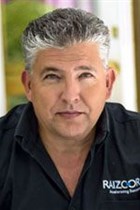






Because there is a cost to mitigation (and mitigation resources are normally inefficient until they are required) and because resources are scarce, businesses need to plan which mitigation plans they will put into place and which they will not. Covid-19 adds an additional level of complexity because money is becoming scarcer and the probability of something awful happening is becoming exponentially higher.
This means that every decision needs to be even better considered and more accurate than previously. However, the current situation means that there far is less time and data to make decisions, while the environment remains incredibly unpredictable.
Let us take a hypothetical case. You have plotted your business and know all the critical processes, all the critical functions and all the people related to these. During the Covid-19 pandemic, you have changed from low to high the probability of one of the people in a critical area leaving. Prior to this pandemic, you had contingency plans in place. If one person left a critical area, you most certainly had someone to replace him or her. But what if both those people contract Covid-19 at the same time and are forced to be at home?
The risk to the business is a function of what is actually happening, and in what sequence it is happening. And because there is no way to predict the sequence of events, there is no way to be fully prepared. The only alternative is to monitor the reality on the ground every day, and make decisions there and then based on the information that is available to you at that point.
In times such as these, where the ability to predict, plan and carefully mitigate is almost impossible, we need to consider a different framework. The framework consists of three time periods: chaos, crystallisation and predictable certainty.
As this system shock occurred, the world entered a chaotic state. All the rules went out the window, and people began to act in a far less rational manner than previously. Toilet paper hoarding, oil prices in the negative terrain are all indicators of a chaotic environment. In chaotic times, the framework used in decision making is: How do I save money (now); How do I make money (now); and How do I protect what I have (now)? Decision making is instantly based on very little information.
There is (erroneously) little to no thinking about the future ramifications of decisions. Every decision should go through the very crude filter of those three questions. We prioritise the present over the future during chaotic times and prioritise cash over profitability.
Although we all know there is no certainty in life and in business, markets, over time, form highly predictable conditions that allow one to make more accurate predictions – at least for a while until another system shock occurs. Hopefully, the next system shock will not be to the global extent and intensity of this latest one. But there will be another system shock, and the rules will once again no longer behave in the manner you once predicted they would.
Humans are pattern seekers. It is a survival instinct. And so, no matter the knowledge that the current uncertainty is not going to be indefinite, we will once again begin the work of building a complex set of interdependent rules that allow us to operate in a context where we can fain a level of control. And it is in this phase that we once again will build our risk models of high, medium and low probability, and high, medium and low impact.
